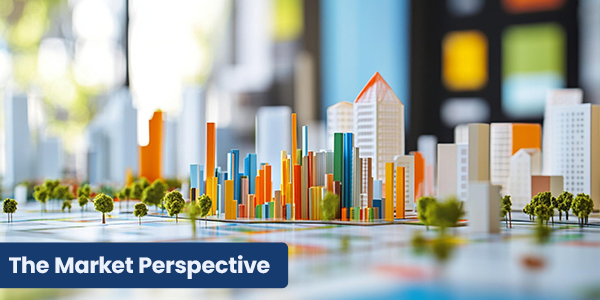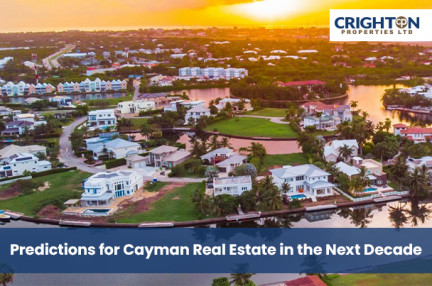
Ways to Add Value to Your Cayman Property Through Renovation
Discover smart renovation ideas that increase your Cayman property value, attract buyers, and maximize ROI in today’s competitive real estate market.
Crighton Properties | November 18, 2025
The story of the Cayman Islands is often told through beaches and sunsets, but the real transformation shaping life here begins on the ground. Roads that used to wind through quiet properties are now effective corridors connecting communities.
Power grids are smarter, internet connections quicker, and stormwater systems more robust. These improvements may not make headlines, but they are gradually changing how people live, develop, and choose houses across the islands.
This blog explores how Cayman’s expanding infrastructure is influencing residential life. We'll discuss how digital connection, sustainable planning, and new transit lines are transforming what it means to live comfortably in this area. By the end, you'll know why infrastructure is now the cornerstone of contemporary Cayman living and why it should be taken into account just as much as the view outside your window.
Anyone who has been a resident of Cayman for more than a few years has seen the difference. George Town is a shorter trip from West Bay. Flooding is less common after a lot of rain. Once a sign of hurricane season, power outages are now uncommon. The change took time, but it is evident everywhere.
Previously, traveling from the Eastern Districts to George Town was an uncertain journey.
Today, with wider highways and better intersections, moving between communities is seamless. Projects like the Esterley Tibbetts Highway extension and enhancements to Linford Pierson Highway have resulted in dependable links that save travel time and open up new residential areas.
What this means for residents:
For developers, this additional accessibility means greater design freedom. They may create deliberately planned communities that mix nature, walkability, and comfort while remaining linked to the island's economic pulse.
Community plays a key role when buying a home in the Cayman Islands. Infrastructure development alters how communities are formed in addition to moving automobiles and data. Strong water networks, steady electricity, and dependable utilities promote both new development and rehabilitation.
Once neglected due to accessibility or distance, these areas are now thriving residential zones.
For example, consider Savannah and Bodden Town. They were regarded as peaceful extensions of the main island 10 years ago. These days, families seeking space, solitude, and value are drawn to these places because of upgraded road networks and modern drainage systems. They are now independent communities rather than far-off suburbs thanks to the arrival of contemporary schools, hospitals, and supermarket chains.
Communities that represent this progression are currently created by developers. Drainage channels are constructed to withstand tropical weather, streets are broader, and pedestrian walkways are safer. Livability is prioritized. These aren't only brand-new initiatives; rather, they are little ecosystems molded by improved planning and infrastructure.
While buildings and roads exhibit obvious advancements, digital infrastructure has brought about a stealthy revolution. Cayman has established itself as one of the Caribbean's most connected regions because of its dedication to growing its fiber-optic network. Reliability on the internet is now a basic expectation rather than a luxury.
How this shapes modern living:
The traits of real estate purchasers have also been altered by this digital infrastructure. Many of the newcomers are international professionals who like a mix of familiarity with technology and a tropical lifestyle. In order to ensure that every house supports great digital performance from day one, developers are increasingly creating residences that appeal to this population.
Sustainability is another facet of Cayman's transition. Recycling programs, renewable energy projects, and new water distribution systems are all subtly enhancing day-to-day living circumstances. The Caribbean Utilities Company's (CUC) solar adoption initiatives and Integrated Solid Waste Management Facility (ISWMS) demonstrate how infrastructure and environmental responsibility can coexist.
Residential life is directly impacted by these investments. Modern homes frequently have solar wiring, insulated roofs, and improved drainage. Native plants that preserve soil and use less water are encouraged by landscaping regulations. In a tropical environment, it makes sense to build neighborhoods that are both comfortable and long-lasting.
Convenience is no longer the only factor in infrastructure. It has to do with perseverance. More than ever, contemporary Cayman houses are safer, more energy-efficient, and better equipped to adapt to changing weather conditions.
Growth in infrastructure is now a key factor in determining property value. Digital networks provide possibility, utilities provide dependability, and roads provide accessibility. Neighborhoods that were previously viewed as secondary gain new levels of appeal with each renovation. The Impact of Infrastructure on the Cayman real estate market varies year over year.

This is evident in the way developers and buyers are now evaluating land. Areas near new intersections or upgraded highways are seeing higher interest from local and international investors. Improved drainage and road access also mean that properties once classified as difficult to develop are now viable.
Key drivers of property value:
Infrastructure is becoming a crucial decision factor for individuals looking at properties for sale in the Cayman Islands. A house near dependable transportation, fiber internet, and sustainable utilities is valuable not just because of its location but also because it is integrated into the island's contemporary network.
At the same time, buyers considering a residential property for sale in the Cayman Islands are finding more options that blend lifestyle with practicality. A strong infrastructure base allows developers to focus on aesthetics and comfort without compromising function. The result is a market that offers both quality and confidence.
What does this all entail for day-to-day living? The majority of locals experience it in subtle, regular ways. less time spent stuck in traffic. trustworthy water pressure. less blackouts. speedier internet. These enhancements result in predictability, which is a source of comfort.
It's additionally encouraging positivity. Because they see the island's infrastructure to be keeping up with their aspirations, people feel at ease making plans in advance, whether they are building a house, launching a company, or raising a family. Social ties above the ground are strengthened by the physical network underneath it.
And while growth often sparks concern about overdevelopment, Cayman’s measured approach shows that progress and preservation can coexist. In order to prevent contemporary life from erasing local character, the island's current initiatives are designed with community size in mind.
The development of Cayman's infrastructure is still ongoing. In order to accommodate population development without depleting resources, future plans call for ongoing road expansions, enhanced stormwater systems, and utility enhancements. Residential life will continue to change as these initiatives develop, becoming quicker, more intelligent, and more sustainable.
This is stability for investors and homeowners. The infrastructure being constructed now is laying the groundwork for Cayman's future residents. The future is actually coming closer to your door, whether you favor the peaceful pace of East End or the bustling of George Town.
Stronger infrastructure directly improves accessibility, convenience, and quality of life, which makes homes more desirable and supports steady value appreciation over time.
No. George Town is still the hub, but significant improvements are also being made at Savannah, Bodden Town, Prospect, and the Eastern Districts, which will assist spread development around the island.
Look for completed roadwork, stable utility connections, and fiber internet availability. Confirm that drainage and elevation standards meet modern building requirements for long-term peace of mind.

Discover smart renovation ideas that increase your Cayman property value, attract buyers, and maximize ROI in today’s competitive real estate market.

Looking for a pet-friendly home in Cayman? Learn key factors pet owners should consider, from amenities to community rules and more.

Explore expert predictions for the Cayman Islands real estate market over the next decade — trends, growth, and investment opportunities.